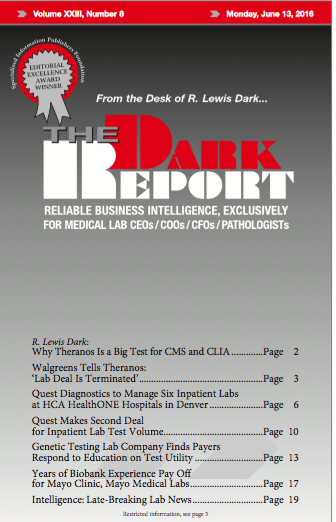NEWS OF A HOSPITAL INPATIENT LAB MANAGEMENT AGREEMENT between HealthONE of Denver and Quest Diagnostics Incorporated marks the second time in six months that the public lab company has earned an inpatient lab management pact with a multi-hospital health system. There are two aspects of this development that make it newsworthy for lab administrators and …
Quest Makes Second Deal For Inpatient Lab Volume Read More »
To access this post, you must purchase The Dark Report.


